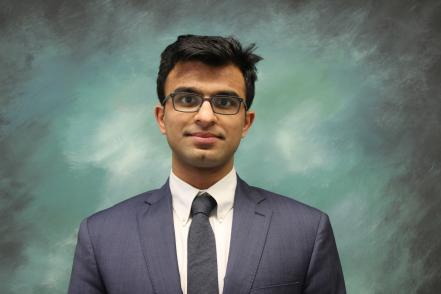The Week that Was: All of Lawfare in One Post
On Friday, Susan Hennessey and Benjamin Wittes shared the third episode of The Report, Lawfare’s podcast series telling the story contained in Robert Mueller’s 448-page report. The series is available on all major podcast distribution services:
Published by The Lawfare Institute
in Cooperation With

On Friday, Susan Hennessey and Benjamin Wittes shared the third episode of The Report, Lawfare’s podcast series telling the story contained in Robert Mueller’s 448-page report. The series is available on all major podcast distribution services:
Following President Trump’s announcement that he intended to nominate Rep. John Ratcliffe of Texas as the next Director of National Intelligence (DNI), a prospect he abandoned on Friday afternoon, David Priess illustrated the trouble with nominating a DNI with little relevant experience from Trump central casting.
Bobby Chesney explained how the Vacancies Reform Act applies to the position of DNI.
Jen Patja Howell shared the most recent episode of Rational Security, the “The ‘You Too Can Be DNI!’ Edition,” in which Shane Harris, Susan Hennessey and David Priess discuss the anticipated appointment of Rep. John Ratcliffe of Texas as the next Director of National Intelligence, Shane’s recent profile of Gina Haspel in the Washington Post and more:
Bobby Chesney and Steve Vladeck shared the most recent episode of the National Security Law Podcast, in which they discuss several succession-in-office topics for the Director of National Intelligence and positions in the Department of Homeland Security, give an update on proceedings in the military commissions, and more:
Howell also shared an episode of the Lawfare Podcast, a conversation between David Priess and Jonna Mendez about the latter’s new book, “"The Moscow Rules: The Secret CIA Tactics that Helped America Win the Cold War”:
As part of Lawfare’s coverage of cybersecurity and tech-policy issues, Scott R. Anderson, Quinta Jurecic, Eugenia Lostri and Margaret Taylor analyzed the Senate Intelligence Committee’s recent report on election security in the context of the legislative gridlock over the issue.
Wyatt Hoffman and Ariel E. Levite argued that the market and the government need to move beyond just punishing corporations after major cybersecurity failures to instead steer them toward proactive and comprehensive cyber risk management.
Dhruva Jaishankar noted that the globalization of the tech sector has affected international relations and national security.
Stewart Baker shared the most recent episode of the Cyberlaw Podcast in which he interviews Paul Scharre and Greg Allen, and discusses recent cybersecurity-related news with Mieke Eoyang:
Vishnu Kannan shared the criminal complaint filed by the U.S. Attorney’s Office for the Western District of Washington in the Capital One hacking case.
Rachel Brown and Preston Lim shared the most recent edition of SinoTech, in which they analyze the resumption of trade talks, President Trump calling on the WTO to stop treating China as a “developing economy,” and more.
Ryan Hass and Susan A. Thornton argued that the U.S. has economic, strategic and values-based interests in supporting peaceful protests in Hong Kong, and in engaging with the Hong Kong and Beijing governments to prevent escalation.
Henry Farrell and Abraham L. Newman introduced a new paper on “weaponized interdependence” and the intersection of national security and economic policy.
Vishnu Kannan shared a decision by Attorney General William Barr which limits asylum claims based on family ties.
Mikhaila Fogel shared an order by Judge Randolph Moss of the U.S. District Court for the District of Columbia’s order vacating a presidential proclamation barring people who enter the country outside ports of entry from seeking asylum.
Vishnu Kannan collected all national security-related exchanges from this week’s Democratic primary debate in a single post.
Mieke Eoyang, Ben Freeman, Ryan Pougiales and Benjamin Wittes released the results of their most recent poll on public confidence in national security matters.
Maggie Tennis and Strobe Talbott argued that jettisoning arms control endangers the U.S. edge in great power competition.
Renee Anderson reviewed a new edition of Mary Shelley's book, “Frankenstein: Annotated for Scientists, Engineers, and Creators of All Kinds,’' ed. David H. Guston, Ed Finn, and Jason Scott Robert.”
Arshan Barzani reviewed William A. Schabas's book, “The Trial of the Kaiser.”
Quinta Jurecic wrote that, under certain circumstances, a refusal to engage the matter of impeachment raises questions about whether members of Congress are adhering to their oaths of office.
She also shared a judge’s dismissal of the Democratic National Committee’s lawsuit against the Trump campaign, Wikileaks, the Russian Government and others.
Mikhaila Fogel shared the U.S. District Court for the District of Columbia’s denial of Roger Stone’s motion to dismiss the charges against him.
Vishnu Kannan shared the House Oversight Committee’s report on the Trump administration’s deal to transfer U.S. nuclear technology to Saudi Arabia.
Jen Patja Howell shared the most recent episode of the Lawfare Podcast, featuring a conversation between Scott Anderson and Amb. Doug Silliman about the state of the U.S.-Iraq relationship and the strains placed on it by the Trump administration’s campaign of maximum pressure against Iran:
Matthew J. Aiesi argued that the incendiary balloon attacks by militants in Gaza constitute a war crime.
And Daniel Markey identified three blunders in President Trump’s comments to the press ahead of a meeting with Pakistani Prime Minister Imran Khan.
And that was the week that was.




